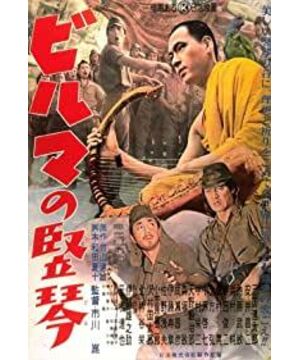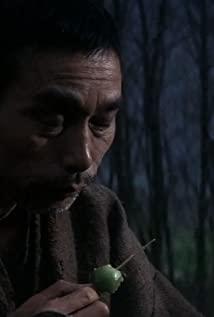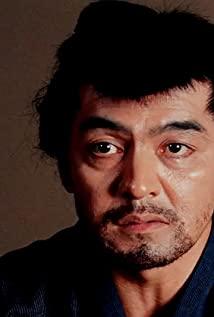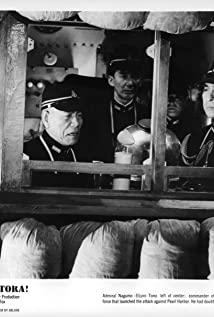During the Second World War, Japan advocated that the fist is civilization, including the "Summary of Civilization Theory" and "The Theory of Leaving Asia". Yukichi Fukuzawa, who had a huge influence on Japan, also advocated the same. Therefore, under the influence of militarism, Japan launched East Asia. In the war, declared war on the United States, he also suffered two nuclear bombs, causing harm to the descendants of East Asia. After the war, the U.S. military occupied Japan, swept away militarism, and brought democracy and peace to Japan. The domestic literature and art in Japan can then develop freely, and naturally many movies have begun to reflect on this war. One of the greatest screenwriters in the history of Japanese cinema, "The Burmese Harp" written by Natsuki Wada, is an example. Later, Hotan’s husband, famous director Ichii Kun made it into a movie twice, which had a great influence and won the St. George Award at the Venice Film Festival.
Unlike our common Japanese-Chinese war films, "The Harp of Burma" does not directly present a grand narrative. It only uses this war as a grand background, telling the story of a Japanese soldier who voluntarily stayed in Burma. The audience is a reflection that transcends nationality and race. It takes the harp-playing soldier in a Japanese team in Southeast Asia during World War II as the angle. It writes that he saw the meaningless blood of those comrades who would rather die than surrender after the emperor announced his surrender, and his psychology has undergone tremendous changes. Later, he chose to become a monk. , Keep a parrot on the shoulder. Finally, he played a piece of harp to bid farewell to his comrades who had surrendered and called him to return to the country, and he chose to stay in Burma with the ashes and souls of his dead comrades. In the letter to his comrades returning home, he deeply missed Japan before the war and reflected on the root causes of all these sufferings. He worshipped Burmese monk as his teacher, stayed in Burma and worked hard for peace...
The scenes of the film are very restrained. The mental journey of the superior soldier Mizushima, the communication with his comrades, the search and calling of his comrades, etc. are not directly communicated through language. Some are just the sound of a harp and two The talking parrot. Because it doesn't say anything, the emotional contagion becomes more intense. The Englishman Clive Bell called "significant form". The point is to stop there, knowing the tendency and accepting what is good, because restraint is the mystery of literature and all art. Shijing Kun did this perfectly in this film.
In the film, the captain of the Japanese team is an officer who graduated from the conservatory of music, and the protagonist Mizushima is a young superior soldier who uses the harp to soothe the homesickness of his comrades and resolve the understanding of the British army. There is no Japanese or British army in the whole film. On the contrary, these Japanese soldiers were very friendly with the old women in Myanmar, and the old women also liked them very much. She often exchanged things for them and sent them information. When they were defeated and returned to China, she would send them off. After the local Burmese old monk rescued the Japanese Bing Mizushima, from the words of the old monk, it can be seen from the eyes of the Burmese that the war was a matter between Britain and Japan. Although it took place in their own country, they felt that It has nothing to do with myself. I have seen some history before that many people in Southeast Asia did not feel that Japan was invading them, but felt that the Japanese helped the Burmese expel colonists, which was consistent with the presentation in the film. This is different from our Chinese sentiment towards Japan. The Chinese were very friendly with the American Flying Tigers. We share the same hatred and hatred and fight against Japan together. Therefore, we also feel that Southeast Asian countries are as hateful as China. In fact, this is not the case.
If war films can put aside political stances and portray human nature more, it will often be much better. "Myanmar Harp" can be called such a humanitarian classic, it does not promote the honor and mission of collectivism, nor does it present the kind of life-and-death hatred, or the legacy of militarism like Yukio Mishima. It reflects the suffering brought by war to mankind from the perspective of an individual. It is a kind of empathy and reflection that transcends races and is the same as human beings, and it is the hope of working towards peace together. It is much better than propaganda materials that talk about anti-war, but actually distort or even glorify the war.
In the film, the superior soldier Mizushima uses the sound of the piano, trains the parrot to speak, and finally expresses his true thoughts through a letter. It is both depressive and poetic, full of deep sorrow. Burma is a country of Buddha, and Hyosui Island of Japan finally chose to become a monk. From the perspective of the Buddha, it is also an interesting setting. In short, what the film presents is a war perspective that is difficult for the invaded or victorious country to have, but at the same time it is a film that looks at war and human dignity in a higher dimension, even for the audience of the enemy country that has suffered from the war. Empathy will also develop when you watch it.
This is Shijingkun’s 1956 movie. Maybe it was not influenced by Hollywood movies at that time. It feels like many movies of that era, with a strong stage color. Like the large-scale chorus and harp playing in the film, it is very similar to the singing team in ancient Greek drama; the monk holding the harp, with a parrot standing on his shoulder, and a bamboo basket on his head, the amiable and unreliable old Myanmar woman, The captain who understands the rhythm and teaches parrots to speak, etc., are all stage characters with great symbolism, representativeness and sense of picture. With a little adaptation and adjustment, I even think that it can become a music similar to the Polish Goat Opera Club. drama. To be honest, if one day I am lucky enough to see this "Myanmar Harp" on stage, I will definitely buy a ticket to watch it.
View more about The Burmese Harp reviews









